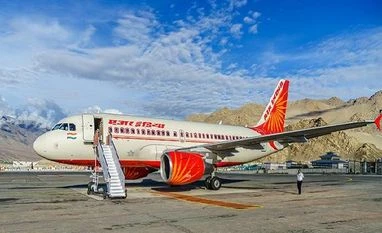On June 28, 2017, The Union Government decided to divest stakes in Air India which is a completely government-owned airline. Disinvestment means the government is ready to transfer its stake and hand over the management rights of the airlines to the private sector. The Cabinet also approved strategic disinvestment in five of Air India’s subsidiaries — its MRO unit Air India Engineering Services (AIESL), ground handling arm Air India Transport Services, Air India Charters which operates Air India Express and Airline Allied Services which operates Alliance Air and Hotel Corporation of India (which owns Centaur Hotels), along with a joint venture AISATS.
The main reasons for Air India’s disinvestment are continuous losses and a mountain of debt. Air India has not registered any profit since its merger with the erstwhile Indian Airlines in 2007. Another reason is the inability of the government to cope with its Rs 520 billion debt. The Central government has already invested Rs 239 billion out of Rs 302 billion slated to be pumped as equity into Air India till 2020-21 as part of the airline’s turnaround plan approved by the previous government.
The Government’s attempt at the strategic sale of the national carrier had a failed landing when not even a single buyer bid to buy the airlines. Experts say that this is mainly because the terms of the sale were prohibitive. Retaining a 24% right was believed as the government retains its right to interfere in how the airline is run. As per some reports, the government would have also added a clause that Air India employees cannot be fired for at least a year after the airline is bought. Even after that, the government will have to decide on a voluntary retirement scheme. Air India has one of the highest for employees to aircraft ratio.
After Transaction advisor, EY cited the clause of the government holding a minority stake in the state carrier as the biggest reason for the failed disinvestment bid. The government is considering revising the terms of sale for Air India, including offering a 100 percent stake, after its latest attempt to sell 76 percent of the debt-ridden airline failed to draw even a single bid.
Some of the strengths of Air India that would attract organizations to buy it are its international and domestic slots and bilateral air services agreement. Air India has 2500 international slots and 2700 domestic slots. Air India has 115 aircraft. Many experts say that the favorable bilateral air services agreement that Air India has is also underutilized.
)